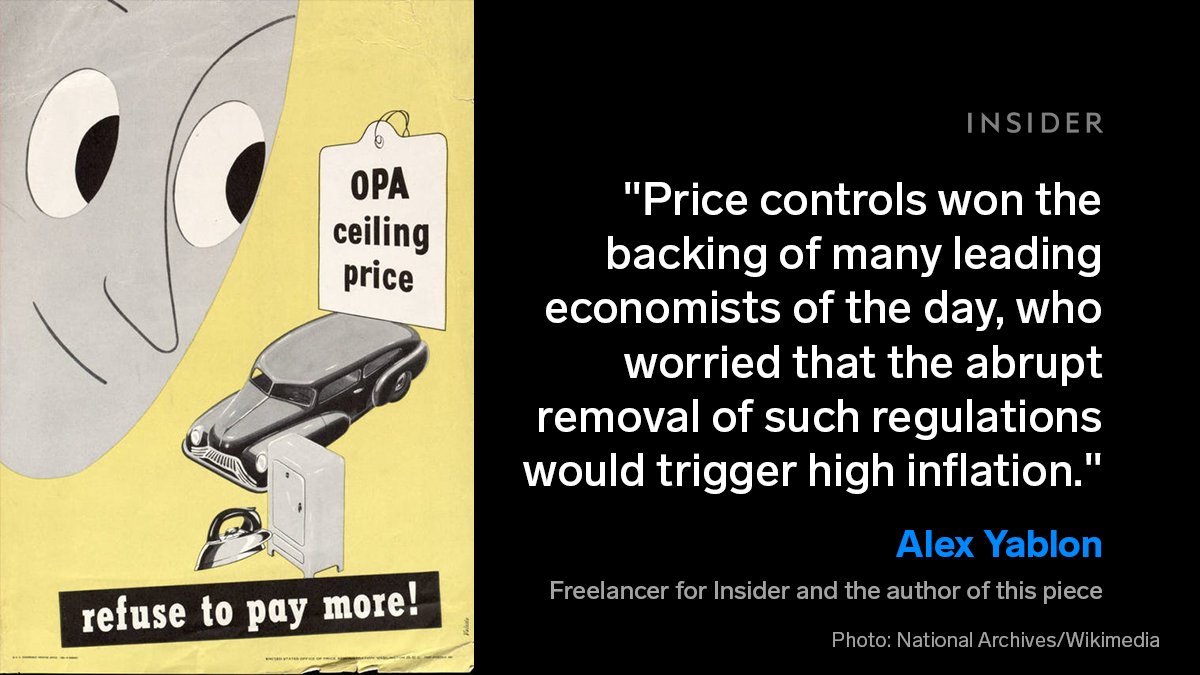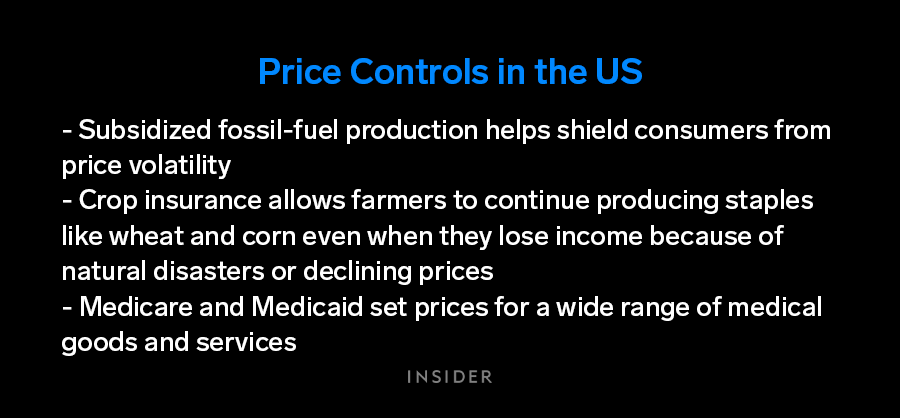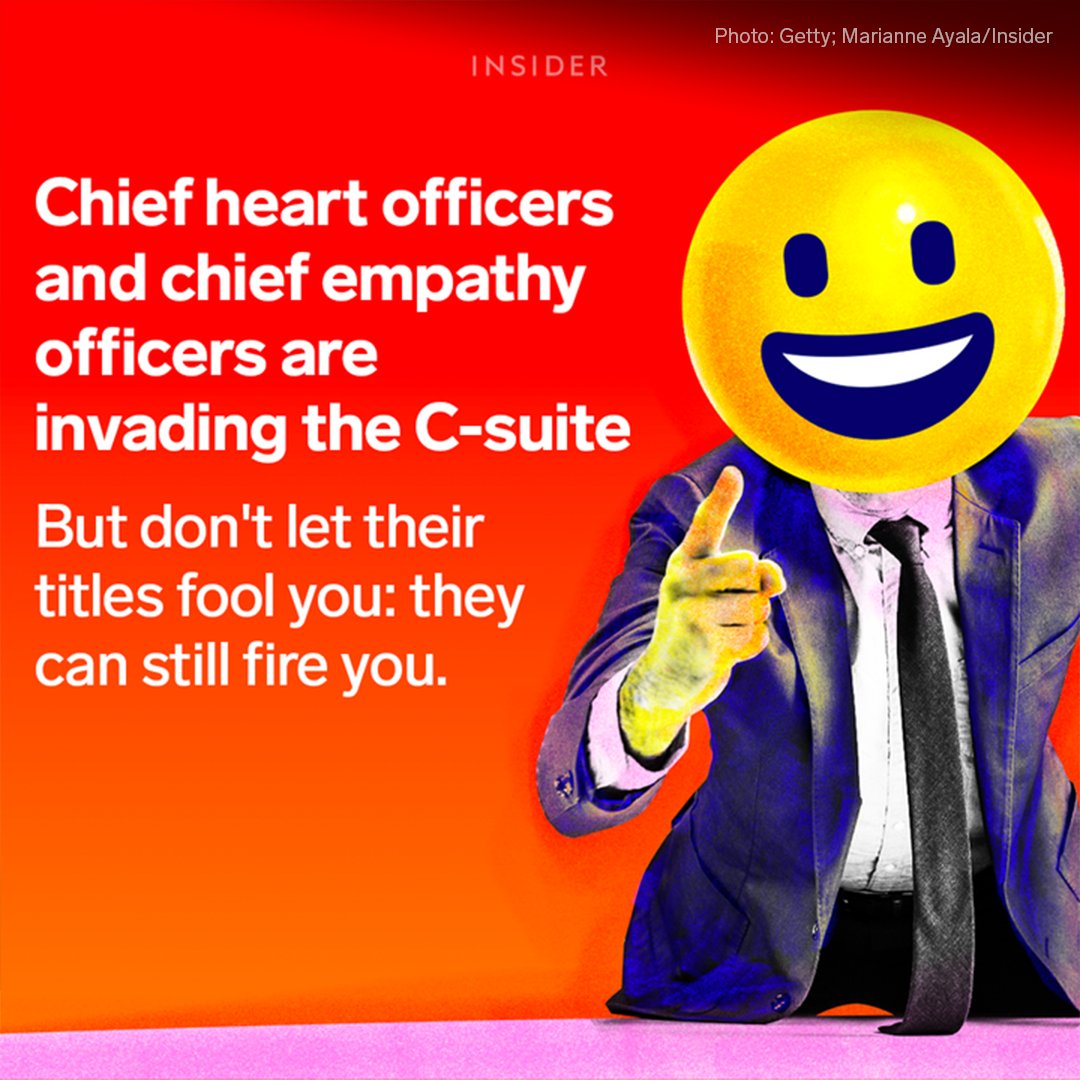📈 The only thing that seems to agitate economists more than historically high inflation is the question of how to tackle it.
@AlexYablon breaks down the debate over price controls — a radical potential fix for America’s runaway prices.👇
businessinsider.com/price-controls…
@AlexYablon breaks down the debate over price controls — a radical potential fix for America’s runaway prices.👇
businessinsider.com/price-controls…

Though price controls — government-imposed caps on the prices of goods — aren't unheard of, many view them as inconceivable.
But skyrocketing prices have experts hotly debating emergency interventions that would've been unthinkable just a few years ago.
businessinsider.com/price-controls…
But skyrocketing prices have experts hotly debating emergency interventions that would've been unthinkable just a few years ago.
businessinsider.com/price-controls…
In December, economist @IsabellaMWeber published an essay arguing that governments should consider whether targeted price controls should be part of the anti-inflation arsenal.
Her essay was greeted with contempt from a wide range of economists.
businessinsider.com/price-controls…
Her essay was greeted with contempt from a wide range of economists.
businessinsider.com/price-controls…

Weber's piece was in part sparked by a White House report comparing the ongoing situation to another episode of high growth and high inflation where the government imposed price controls: World War II and its immediate aftermath.
businessinsider.com/price-controls…
businessinsider.com/price-controls…

In 1941, FDR created the Office of Price Administration to monitor the prices of essential goods and enforce limits on what businesses could charge for them.
The US also imposed price controls during the Korean War and intermittently during the 1970s.
businessinsider.com/price-controls…
The US also imposed price controls during the Korean War and intermittently during the 1970s.
businessinsider.com/price-controls…

Despite this long history, American price controls were always controversial, Yablon says.
But why do price controls make people so mad?
businessinsider.com/price-controls…
But why do price controls make people so mad?
businessinsider.com/price-controls…
Many argue that price controls fly in the face of basic economic common sense.
businessinsider.com/price-controls…
businessinsider.com/price-controls…

And, as opponents point out, a price-control plan gone wrong can be disastrous.
The best-known recent example of this is when Venezuela imposed price controls on essential foodstuffs.
businessinsider.com/price-controls…
The best-known recent example of this is when Venezuela imposed price controls on essential foodstuffs.
businessinsider.com/price-controls…

Plus, unlike other inflation-fighting tools, price controls have become politicized.
Even the World War II-era price controls — that are remembered more positively and patriotically — were subject to vociferous pushback from powerful business lobbies.
businessinsider.com/price-controls…
Even the World War II-era price controls — that are remembered more positively and patriotically — were subject to vociferous pushback from powerful business lobbies.
businessinsider.com/price-controls…

But the government doesn't take a completely hands-off approach to prices even in "normal" times.
They aren't economy-wide controls intended to suffocate the economy-wide impact of inflation, but they are price controls. And, Yablon says, they work.
businessinsider.com/price-controls…
They aren't economy-wide controls intended to suffocate the economy-wide impact of inflation, but they are price controls. And, Yablon says, they work.
businessinsider.com/price-controls…

Weber's idea may be getting another look as inflation persists, Yablon says.
Several critics have acknowledged a cornerstone of her argument: that prices may be set by corporate opportunism in addition to simple supply and demand.
businessinsider.com/price-controls…
Several critics have acknowledged a cornerstone of her argument: that prices may be set by corporate opportunism in addition to simple supply and demand.
businessinsider.com/price-controls…

To read more from @AlexYablon about the history of price controls and what they could do for the US now, subscribe to @thisisinsider.
businessinsider.com/price-controls…
businessinsider.com/price-controls…
• • •
Missing some Tweet in this thread? You can try to
force a refresh








